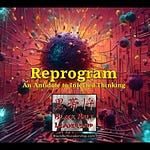Perhaps you’re familiar with the story of David and Goliath. In the Book of Samuel, a teenage shepherd named David goes to visit his brothers (who are serving in the military) and takes them provisions from home. While there, he witnesses an enemy soldier named Goliath, cursing the soldiers, cursing their God, and issuing a challenge for one-on-one combat.
In this time in history, many military conflicts were settled by a battle of champions. Rather than engage in a prolonged battle that would be costly to both sides, each opposing army would select one representative (a champion) to represent them in one-on-one combat. The army whose champion was victorious was deemed the winner of the conflict.
If you’re a movie buff, you saw this displayed in the movie, Troy. We see this in the opening scene of the movie, as Achilles takes on Boagrius, a giant of a man, in a one-on-one match to determine the winner of a military standoff. With a single blow, Achilles thrusts his sword into the heart of his adversary, killing him instantly.
Later in the movie, we see Achilles take on Hector in a winner-take-all battle royale. Hector, despite being a skilled warrior, is eventually outmatched by Achille’s superior strength and divine favor. The Trojans lost their greatest defender, and eventually their city.
Day after day, a young David heard the guttural threats and obscenities being uttered by Goliath and observed the fear his words struck in the soldiers. The giant’s words angered the young shepherd boy, who went to the King to offer to fight the enemy soldier in combat. He was, at first, mocked for his small stature and lack of military experience.
David shared with the King that, as a shepherd, he had successfully slain a lion and a bear who had ventured into the pasture and attempted to take sheep from the flock. David boldly declared the God who had delivered him from the lion and the bear would also deliver him from the hands of the giant, Goliath.
David was offered the King’s armor, but he refused it, choosing instead to battle in attire that was comfortable to him. He also refused the King’s weapons, choosing instead to rely on his trusted slingshot – one of the preferred weapons of a shepherd. As he made his way to confront the enemy combatant, he paused at a brook to pick up five smooth stones, placing them in a small bag attached to his belt.
As Goliath saw young David approach, he mocked the opposing Army, asking why they would send a child to do a man’s job. David’s response was to tell Goliath the same story he had shared with the King, declaring that his God would give him victory over the giant.
I can only imagine the humor Goliath and many of the soldiers looking on displayed as they saw this young, inexperienced teenager staring down a battle-hardened veteran soldier. I can hear the smirks, the laughter, and the mocking taunts coming from the enemy ranks.
But, David wasn’t smiling. That, to Goliath, should have been a clue.
The two squared off, with both armies watching from the sidelines, as soldier faced shepherd. David then took the initiative, engaging in battle against his massive opponent.
The historical account puts Goliath’s height at 9 feet 9 inches tall. He was clad in battle armor from head to toe, leaving few openings to be exploited in battle. Goliath also wielded a spear weighing between 12 and 26 pounds and carried a large sword as a secondary weapon. David faced him wearing the simple clothes of a shepherd, his only weapon, a slingshot, and five smooth stones.
David placed one of the small stones in his sling and began to swing the device in a circular motion as he approached. At the right moment, he released the stone, which hurled through the air like a bullet. The stone struck Goliath in the forehead, sinking into his skull.
David rushes forward, drawing Goliath’s own sword and using it to decapitate his foe. As David hoisted the head of his fallen enemy in the air, he signaled his victory in the contest of champions. Seeing their own champion defeated, the enemy army retreated in fear.
David had accomplished what an army of trained soldiers were unwilling to do.
He faced his giant, and he conquered him.
While the soldiers were thinking too small, focused on what they couldn’t do, David was thinking big, focused on what he knew he was capable of doing.
Speaker and author, Chris Robinson, says it well, “It’s not that you can’t, it’s that you won’t, and that choice is yours.” In this story, David was focused on what he would do, while the soldiers were focused on what they wouldn’t do.
David was thinking big when everyone around him was thinking small.
This is a lesson in thinking.
One of my favorite books is David Schwartz’s classic, “The Magic of Thinking Big.” The premise of the book is simple, yet profound. For most of us, it’s not that we think too big, but that we think too small, and we’re okay with that. I love this quote from the book:
"Those who believe they can move mountains, do. Those who
believe they can't, cannot. Belief triggers the power to do."
When we’re okay with thinking too small, and believing it’s big enough, we limit our success.
A limitation is a self-imposed roadblock or impediment. It’s like pouring a case of broken glass all over the road we need to traverse, and then trying to walk that road barefoot. Or it’s like identifying the road to success and then erecting a series of barriers that prevent us from walking the road. In either scenario, the going is going to be slow, if we can even go at all.
Henry Ford famously said, “Whether you think you can, or think you can’t, you’re right.”
There is a LOT of truth in that.
Sadly, far too many people choose to focus on the latter rather than the former. As we think, we say, do, and become. When we think small, we say small things, do small things, and become a small person. If we’re willing to settle for less, less is what we will attract.
It’s about how we define ENOUGH.
By definition, enough is having as much or as many as required. Required is the keyword here. If we only require a little, a small amount, enough becomes enough too soon.
Our definition of enough expands or limits our success.
High enough. Far enough. Long enough. Wide enough. Deep enough. Worked enough. Hard enough. Know enough. Done enough. Said enough. Learned enough. Grown enough. Matured enough. Won enough. Successful enough. Ahead enough.
The minute we settle for enough, we stop striving for success. Settling is when good enough becomes good enough. This is where we limit what greatness looks like.
If you want to be successful, you’ve got to face your giant.
This giant is known by many names: Not smart enough; not good enough; not talented enough; not tough enough; not wise enough; not experienced enough; not educated enough; not handsome (or pretty) enough; not tall enough, not short enough, not strong enough, or not skilled enough…to name a few.
This giant is a construct of our thinking. It’s a creature of our belief system. Sadly, we all too often create and name our own giant, making this self-manufactured character appear even larger than he actually is. At other times, we allow the opinions of others to create and name our giants, and then we accept their limiting beliefs of our potential as our own.
Either way, it’s a giant we have to stare down, take on, and slay.
It’s a one-on-one battle and there can only be ONE champion.
Small thinking, like Goliath, doesn’t want us to succeed, to rise to our full potential, and to prove to ourselves and the world that we were born for greatness.
Change your thinking, change your world.
Imagine what would have been the outcome if Thomas Edison, Henry Ford, Joseph Salk, Alexander Graham Bell, the Wright Brothers, Bill Gates, Steve Jobs, Michael Zuckerberg, or Elon Musk had chosen to be okay with small thinking.
No lights, no movies, no copy machines, no video recorder, no automobiles, no vaccines, no telephone, no airplanes, no Windows, no iPhone, no Facebook, and no Tesla or Space X.
These men, and countless others, chose to face their giant, and to conquer the limitations others tried to put on them, as well as silence their own self-imposed limitations. They, like David, chose to be defined by what they COULD do, and their COULD DO became their WOULD DO that drove them to lofty success.
Og Mandino said it well, “I will persist until I succeed.”
In the book, “The Magic of Thinking Big,” David Schwartz shares three powerful insights to help you stop thinking small and start thinking big.
First, focus on success, not failure. Remember, what we focus on expands within our thinking. Our outlook determines our outcome. Remember Henry Ford’s words:
“Whether you think you can, or think you can’t, you’re right.”
Secondly, we must remind ourselves that we are better than we think we are. Successful people face down the giant of mediocrity and believe they are capable of saying, doing, and becoming more – and they take the necessary steps to make that happen.
Thirdly, we’ve got to believe big and act accordingly. The size of our success is determined by the size of our belief in ourselves. When we think little thoughts, we can only expect little outcomes. Think bigger thoughts and we can expect bigger outcomes.
Albert Einstein observed:
“The world as we have created it is a process of our thinking.
It cannot be changed without changing our thinking.”
Facing the giant of doubt, disbelief, and not enough isn’t an option. Like David, we must respond to this bellowing monster, see him for the imposter that he is, and conquer this foe. When we do that, we remove the self-imposed and others-imposed roadblocks that are holding us back.
So grab your slingshot, pick up some stones, and go take out that giant standing in your way.
And when you’re fighting a giant, don’t forget the old adage:
“The bigger they are, the harder they fall.”











Share this post